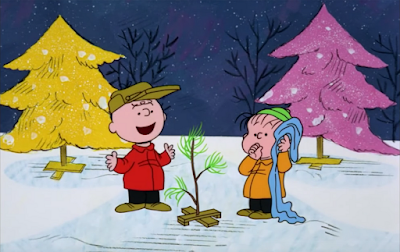(In case you're wondering how I was able to write this with such supernatural speed, well, I didn't. It took me about a week way back in late February 2023, after I had heard that Jimmy Carter had entered a hospice and assumed, obviously incorrectly, that he only had a few weeks left--Kirk)
 |
| 1924-2024 |
Striding confidentially upon a political landscape ravaged by Watergate, the smiling peanut farmer (who had once been a nuclear engineer) seemed to have come out of nowhere. Of course, nowhere is always somewhere, and this somewhere was Georgia, where Jimmy Carter had been first a two-term state senator, and then a one-term governor (the latter all that state's constitution allowed at the time.) Not particularly well-known outside of Georgia, he used that to his advantage in 1976 when running for president of the United States. He promised voters that he was one politician who would be "open, direct, and honest, for a change", and, by a very narrow margin, that promise got him elected to the highest office in that land. As President, his most notable success--that is, a success that everyone viewed as a success--was the brokering of a peace treaty between Israel and Egypt, known as the Camp David Accords. That was probably the high point of his presidency. He also did a number of things that attracted much controversy at the time--grant amnesty to Vietnam-era draft dodgers, cancel the B-1 bomber, push for a treaty that transferred the Panama Canal to the Panamanians--that stir up so little passion four decades later that it's easy to forget these acts were ever controversial to begin with.
The low points? Well, the same things that bedeviled the Nixon and Ford administrations: inflation, stagflation, and something closely related to the two: the Energy Crises. OPEC had turned off the petroleum spigot in 1973, leading to long lines at the gas station, along with a very prolonged and nasty recession (the last thing a troubled Nixon White House needed.) Carter was rightly afraid that such a thing could happen again, and went on TV early in his presidency to warn the public that the Energy Crises was the Moral Equivalent of War. He laid out some legislative recommendations. Congress dragged its feet. Part of the problem is that Carter took his campaign brag of being a Washington outsider a bit too seriously, to the point of not returning phone calls from congressional members of his own Democratic party! Instead, he seemed to want to rely on what Teddy Roosevelt had described as the "bully pulpit", a pulpit a later Roosevelt had augmented with radio, and which now could be augmented with television. Unfortunately, with every succeeding TV appearance, it seemed less like bullying on Carter's part and more like pleading. Then, starting in November of 1978, Carter's worse fears were realized when the Iranian Revolution sparked another oil shock. The long lines were back, as was the recession. In the midst of all this, Carter decided to give another speech.
The speech ran a little over a half an hour. In the interest of time, I've decided to show you the second part of the speech and describe the first part. Carter starts off by saying that this indeed was going to be yet another energy speech, but when he sat down to write it, he wondered why none of the earlier speeches had much effect. Suspecting there was something wrong with country beyond the mere price of gasoline (actually, the mere price of everything by that point), he invited people from all walks of life to a powwow of sorts at Camp David, then wrote down the things that he had heard. Many of those things, which Carter read on the air with extraordinary equanimity, were highly critical of Carter himself ("Mr President, you're not leading this nation, you're just managing the government".) After all that was done, he got to the gist of the matter:
So it ended up being another energy speech after all, the stuff about the mood of the country merely a prelude. But it was the prelude that stuck and continues to stick to this very day. The media quickly coined it the "malaise" speech, though that word was never uttered. Still, I don't see any real unfairness there. Malaise was as good a synonym for a crisis in confidence as any. Having been told at several points in my life that I lack confidence, I think I would have preferred to be told I was suffering from a malaise instead. As unsolicited advice goes, malaise evokes real pathos whereas a lack of confidence comes across as merely trite. But enough about me and back to Carter. The speech today is remembered as a huge blunder on Carter's part, but it's a false memory. In fact, his approval rating soared immediately following the speech. A few days later he fired a bunch of cabinet leaders in what was perhaps meant to be a show of resoluteness (someone at that Camp David powwow had told him: "Your cabinet members don't seem loyal to you",) but it came across as an administration in disarray instead, a conclusion many Americans had come to before the speech. As for the steps Americans needed to take to conserve energy, I think they were beginning to do that anyway, not out of any renewed patriotism, but as a matter of practicality. The higher the price at the pump, the higher the heating bills, the less a person drives and turns up the thermostat. Congress eventually did pass that windfall profits tax (imposed on a petroleum industry that was seen by an angry American public as making too much money off the Energy Crises) but by the time that happened, things for Carter had gotten a...
...whole lot worse.
When the news arrived that the Iranian students or protestors or radicals or whatever they were had overrun the U.S. Embassy and taken a bunch of hostages, the teenaged me wanted Carter to drop an H-bomb on Tehran. Now, before I get a bunch of angry rebukes in the comment section, let me reassure you that the late-middle-aged me disagrees with the teenaged me and is glad Carter did not do that. Call it maturity. And Carter himself showed quite a bit of maturity during that whole ordeal. And quite a bit of patience. In fact, patience became kind of a rallying cry. Guest-hosting Saturday Night Live, Howard Hesseman summed it up thusly:
HOW LONG WILL WE WAIT?
AS LONG AS IT TAKES!
SUPPOSE IT TAKES FOREVER?
THEN THAT'S HOW LONG WE'LL WAIT!
It didn't take forever. Just the better part of an...
While he may have been a liberal in the dictionary sense of the word, Jimmy Carter was never truly a man of the Left. He was wary of government spending, even during harsh economic times when priming the pump was called for; eventually eschewed wage and price controls as a way of combating inflation in favor of Federal Reserve Chairman (and fellow Trilateral Commision member) Paul Volcker placing a chokehold on credit; and many of his domestic programs (energy included) involved deregulation. Yet neither was Carter a man of the Right, as any true man of the Right with a megaphone will tell you, as he had the temerity to suggest that human rights violations in noncommunist countries were every bit as objectionable as human rights violations in the communist ones. As for being a moderate or a middle-of-the roader, Carter's technocratic moralizing as civilization fell apart around him and a new Dark Age threatened (or so it seemed at the time) was too upsetting to a large enough swath of the public to be anything else but the moral equivalent of radicalism. So, if Jimmy Carter wasn't Left, Right, or Middle, what exactly was he? Simply his own unique self. A self he didn't feel the need to hide. As he had promised, he was open, honest, and direct. The things we should all want in a president. But not just those things. They should merely be a prelude.
Take it away, Gladys:
Just substitute Washington for LA. And I think it was a chartered flight.






.jpg)








.jpg)





















.jpg)






.jpg)




